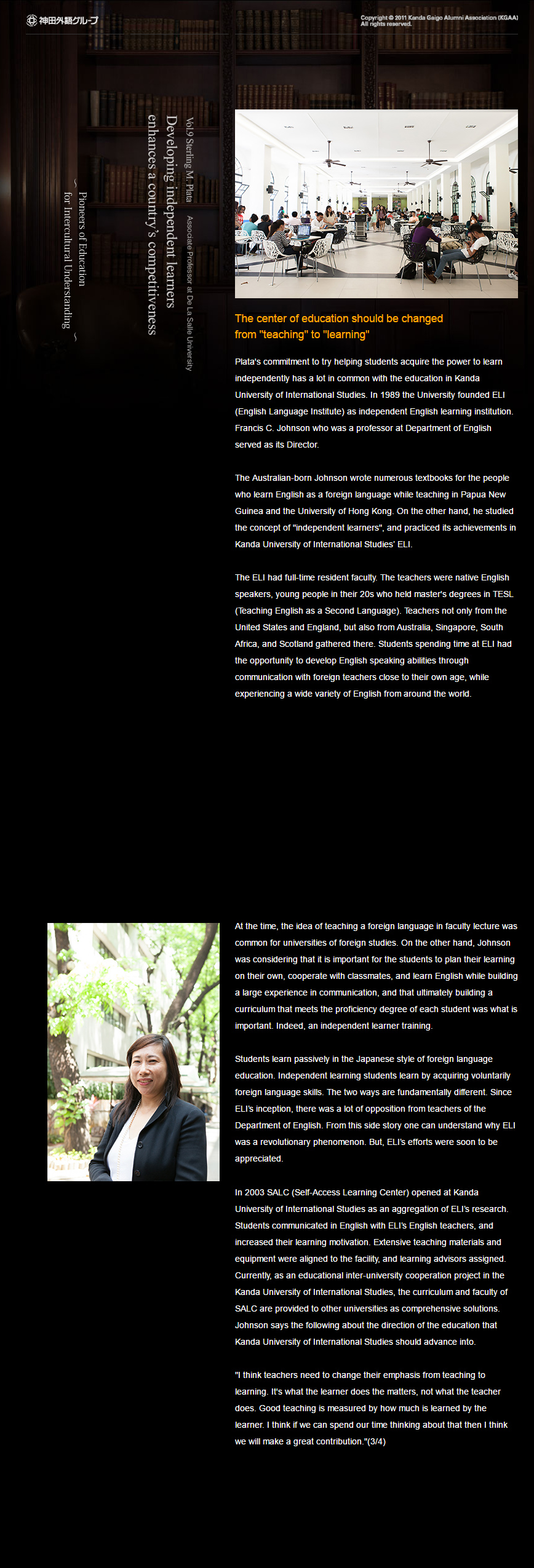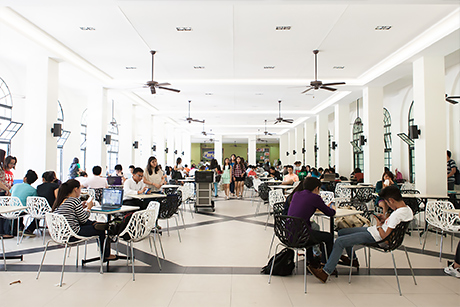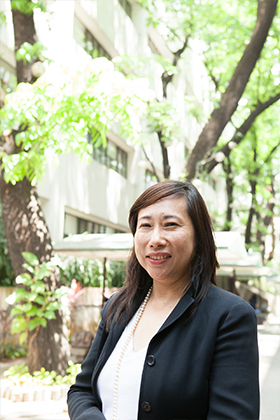

Copyright © 2011 Kanda Gaigo Alumni Association(KGAA). All rights reserved.

Plata's commitment to try helping students acquire the power to learn independently has a lot in common with the education in Kanda University of International Studies. In 1989 the University founded ELI (English Language Institute) as independent English learning institution. Francis C. Johnson who was a professor at Department of English served as its Director.
The Australian-born Johnson wrote numerous textbooks for the people who learn English as a foreign language while teaching in Papua New Guinea and the University of Hong Kong. On the other hand, he studied the concept of "independent learners", and practiced its achievements in Kanda University of International Studies’ ELI.
The ELI had full-time resident faculty. The teachers were native English speakers, young people in their 20s who held master's degrees in TESL (Teaching English as a Second Language). Teachers not only from the United States and England, but also from Australia, Singapore, South Africa, and Scotland gathered there. Students spending time at ELI had the opportunity to develop English speaking abilities through communication with foreign teachers close to their own age, while experiencing a wide variety of English from around the world.
At the time, the idea of teaching a foreign language in faculty lecture was common for universities of foreign studies. On the other hand, Johnson was considering that it is important for the students to plan their learning on their own, cooperate with classmates, and learn English while building a large experience in communication, and that ultimately building a curriculum that meets the proficiency degree of each student was what is important. Indeed, an independent learner training.
Students learn passively in the Japanese style of foreign language education. Independent learning students learn by acquiring voluntarily foreign language skills. The two ways are fundamentally different. Since ELI’s inception, there was a lot of opposition from teachers of the Department of English. From this side story one can understand why ELI was a revolutionary phenomenon. But, ELI’s efforts were soon to be appreciated.

In 2003 SALC (Self-Access Learning Center) opened at Kanda University of International Studies as an aggregation of ELI’s research. Students communicated in English with ELI’s English teachers, and increased their learning motivation. Extensive teaching materials and equipment were aligned to the facility, and learning advisors assigned. Currently, as an educational inter-university cooperation project in the Kanda University of International Studies, the curriculum and faculty of SALC are provided to other universities as comprehensive solutions. Johnson says the following about the direction of the education that Kanda University of International Studies should advance into.
"I think teachers need to change their emphasis from teaching to learning. It's what the learner does the matters, not what the teacher does. Good teaching is measured by how much is learned by the learner. I think if we can spend our time thinking about that then I think we will make a great contribution."(3/4)